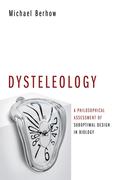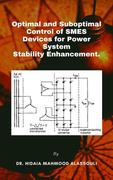Did you mean:
Suboptimalen52 Results for : suboptimal
-

Kommunismus und Nationalsozialismus
»War beides nicht doll, das eine aber weniger böse als das andere, nämlich eigentlich gar nicht, nur suboptimal realisiert.« So oder ähnlich lautet das heutige Klischee über die zwei großen ideologiebasierten Diktaturen des 20. Jahrhunderts. Einen Vergleich von beiden, bei dem am Ende das Klischee nicht wieder rauskommt, verbietet die politische Korrektheit. Lothar Fritze, kundiger Totalitarismusforscher, wagt es dennoch und blickt tief hinein in das Denken der beiden Herrschaftssysteme, ihre Weltanschauung, ihre Utopien und - heißestes Eisen - ihre Moral (denn auch die Nazis hatten eine). Was er dabei zutage fördert, verdeutlicht wesenhafte Unterschiede zwischen den beiden Antagonisten, rückt sie aber auch so dicht zusammen, daß teils kein Blatt dazwischen paßt. Sowohl ihre Zielstellung, die bestehende gesellschaftliche und staatliche Ordnung zugunsten einer neuartigen, »besseren« zu beseitigen, wie die dabei eingesetzten Methoden und Mittel waren versippt. Hammer/Sichel und Hakenkreuz erweisen sich als überraschend verwandte Insignien. Die Herrschaftssysteme des Kommunismus und des Nationalsozialismus treten als ideologiegeleitete Diktaturen auf. Hinsichtlich ihrer Zielstellung, die jeweils bestehende staatliche und gesellschaftliche Ordnung zu beseitigen und eine gänzlich neuartige, bessere aufzubauen, sowie der dabei eingesetzten Mittel und Methoden erscheinen sie als Zwillingsbrüder; hinsichtlich der inhaltlichen Ausrichtung ihrer Ideologien, insbesondere ihrer politischen und moralischen Grundauffassungen, sind sie Antipoden. Im Buch werden wesentliche Aspekte dieser Ideologien dargestellt und einem Vergleich unterzogen. Der im Westen gegenwärtig ausgetragene Kulturkampf ist in seinem weltanschaulichen Gehalt eine Auseinandersetzung zwischen denselben konträren und doch gleichermaßen partiell berechtigten politisch-moralischen Grundorientierungen, deren Konfrontation schon das 20. Jahrhundert prägte. Im Kampf um die kulturelle Hegemonie verfolgt die derzeit dominierende, politisch links orientierte Elite das Ziel, diejenige politisch-moralische Grundauffassung, die in Gestalt der Ideologie des Nationalsozialismus eine konkrete, aber keineswegs notwendige Ausformulierung erlangte, mit der nationalsozialistischen Ideologie gleichzusetzen und sie damit - trotz ihrer lebenspraktischen Unaufgebbarkeit - zu desavouieren und deren Vertreter unter den politischen Gegnern mundtot zu machen.- Shop: buecher
- Price: 22.70 EUR excl. shipping
-

How Much Brain Do We Really Need? , Hörbuch, Digital, ungekürzt, 460min
How Much Brain Do We Really Need? challenges you to think differently about the brain. Rather than solely concentrating on the many wonderful things the brain can do, it asks whether in fact we can live satisfactorily without some of it. It turns out that brain shrinkage, for instance, is no rare thing. While the bad news for all of us is that from our mid-30s our brains start to shrink, the good news is that somehow we generally still seem to muddle along. But how can this be? Does this mean we don't really need all of our brain? How Much Brain Do We Really Need? aims to shed light on what the human brain can do - in both optimal and suboptimal conditions and in the past, present and future - and considers what it may do without. To help you decide how much brain we really need, you'll be presented with facts and figures, case studies and hypothetical scenarios, expert interviews and scientific principles. You'll be taken on a journey from the ancient mists of time to the far reaches of the future, via different species and lands. This book reflects on why we have so much brain in the first place and what distinguishes us from other species. It considers how we define what a working brain needs to be able to do, from the basics of survival to the highest levels of human achievement. And by looking at what is known about normal variation in brain function and assessing it alongside cases of people who live without wholly functioning brains, it ponders whether we need so much brain and whether a little bit of shrinkage does us any harm after all. To round things off, the authors dust off their crystal ball to contemplate future possibilities for the human brain. How Much Brain Do We Really Need? tackles diverse questions, such as: whether brain training or being a 'Super Ager' is the key to healthy ageing; whether drinking coffee or going for a run is better for our cognitive performance; whether women really experience ungekürzt. Language: English. Narrator: Jane Slavin. Audio sample: https://samples.audible.de/bk/lbas/000018/bk_lbas_000018_sample.mp3. Digital audiobook in aax.- Shop: Audible
- Price: 9.95 EUR excl. shipping
-

Neuroscience and Decision-Making (The Critical Thinker, #7) (eBook, ePUB)
Steer your emotional brain so it doesn't overrun your life. A neuroscience-based approach to avoiding impulsive decisions, distractions, and unconscious biases. Our brains are not wired for optimal, cool headed, slow decisions. They are wired for fast, survival-oriented, emotion-based reactions. It's time to understand your primal mental tendencies and make more deliberate, cool-headed choices. Stop deciding on autopilot. You can do better. Studies have shown that our decisions are disrupted by a large selection of irrationalities and biases. We tend to look for information that supports our opinion and discount that doesn't. Sudden emotions can make us change our mind on a whim. Our brains, fascinating as they are, often are not reliable to make the best decision if left unchecked. When willpower is depleted, we tend to take the path of least resistance and procrastinate. When uncertainty arises, the amygdala can lead us into fight or flight reactions. The next thing you know is that we feel anxious, dissatisfied, or discouraged about who you are. What if there was a way to make quality decisions consistently? Good news, there is! Neuroscience and Decision-Making breaks down the chemical and physiological events in the brain that lead to sometimes unwanted choices. Instead of labeling yourself as someone who "always makes bad decisions," shift perspective. The solution is not personality-related, it's awareness-related. To overcome your brain's natural decision-making tendencies, you need to understand the brain's urges and work with them, rather than against them. Think clearly, second-guess yourself less, and ultimately be more satisfied with your choices. Albert Rutherford is an internationally bestselling author. His books draw on various sources, from corporate system building, strategic analysis, scientific research, and his life experience. He has been optimizing individual and corporate decision-making his whole adult life and brings his proven advice to you. Live life with fewer regrets. •How to fully tap into your brain's superpower, neuroplasticity. •How heuristics trick your brain for suboptimal choices and how to avoid them. •The role of the amygdala in impulse decisions and how to modulate your responses to them. •How distractions affect your "control network" and ways to mitigate their effect. •Understanding the "I will", "I won't", "I want" willpower responses. •Should you or should you not rely on your gut feeling? •How virtual reality can help you increase your empathy when making decisions. Neuroscience and Decision-Making is based on extensive research and study between the fields of psychology, behavior science, neuropsychology, and decision-making. Learn to make consistently good decisions in alignment with your true goals and values.- Shop: buecher
- Price: 0.99 EUR excl. shipping
-

Theory of Suboptimal Decisions
Theory of Suboptimal Decisions - Decomposition and Aggregation. Auflage 1988: ab 117.49 €- Shop: ebook.de
- Price: 117.49 EUR excl. shipping
-

Managing the uncertainties. How both rules and anticipated consequences may lead to suboptimal outcome
Managing the uncertainties. How both rules and anticipated consequences may lead to suboptimal outcome: ab 12.99 €- Shop: ebook.de
- Price: 12.99 EUR excl. shipping
-

Dysteleology
Dysteleology - A Philosophical Assessment of Suboptimal Design in Biology: ab 20.99 €- Shop: ebook.de
- Price: 20.99 EUR excl. shipping
-

Optimal and Suboptimal Control of SMES Devices for Power System Stability Enhancement
Optimal and Suboptimal Control of SMES Devices for Power System Stability Enhancement: ab 12.99 €- Shop: ebook.de
- Price: 12.99 EUR excl. shipping
-

Optimal and Suboptimal Control of SMES Devices for Power System Stability Enhancement
Optimal and Suboptimal Control of SMES Devices for Power System Stability Enhancement: ab 14.49 €- Shop: ebook.de
- Price: 14.49 EUR excl. shipping
-

Optimal and Suboptimal Control of SMES Devices for Power System Stability Enhancement
Optimal and Suboptimal Control of SMES Devices for Power System Stability Enhancement: ab 13.49 €- Shop: ebook.de
- Price: 13.49 EUR excl. shipping
-

Optimizing Suboptimal Results Following Cataract Surgery
Optimizing Suboptimal Results Following Cataract Surgery - Refractive and Non-Refractive Management: ab 106.99 €- Shop: ebook.de
- Price: 106.99 EUR excl. shipping